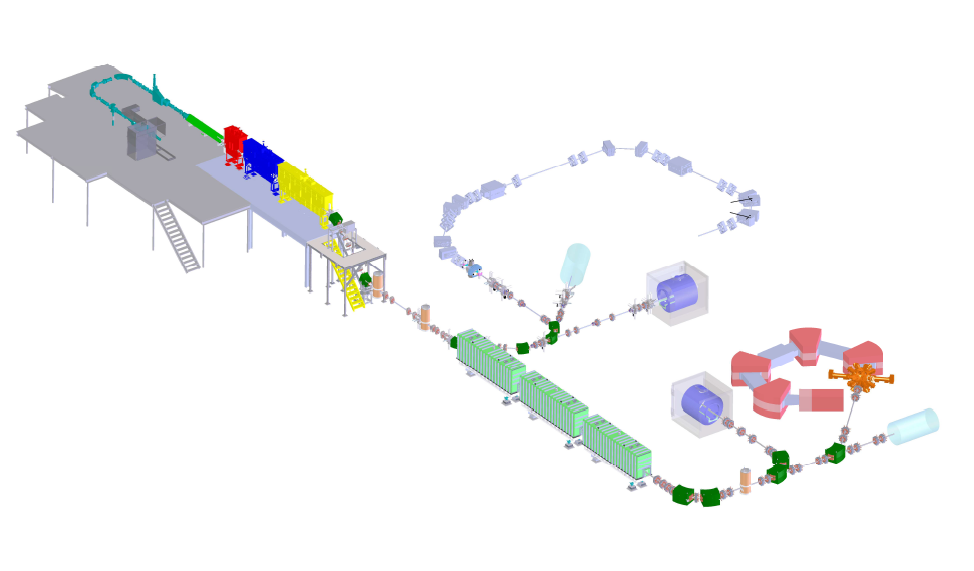The ReA3 upgrade workshop, which will be held in conjunction with
the 2015 Low Energy Community Meeting,
is aimed at defining science opportunities with reaccelerated rare isotope beams at ReA6 as well as for energy upgrades up to 12MeV/A at ReA12. The construction of ReA3 is now complete at the Coupled Cyclotron Facility at NSCL and new beams covering a broad set of elements are
available.
A high energy upgrade to ReA6 and eventually to ReA12 in the future is one of the flagship projects at the NSCL/FRIB. A timely construction of ReA12 has been strongly endorsed in the 2014 Low-Energy Nuclear Physics DNP town meeting. The energy domain of ReA6-12 is ideal for a wider range of nuclear reactions to study the structure of exotic nuclei and to determine key nuclear reaction rates of interest to astrophysics and homeland security.
To realize the full science discovery potential at NSCL and FRIB,
it is critical to have a diverse set of state-of-the-art experiments with large-scale equipment such as GRET(IN)A, the AT-TPC, a solenoid spectrometer, and ISLA as well as
a wide variety of complementary detection systems.
 It is therefore important to discuss foreseen programs at ReA6-12 and identify the most compelling scientific cases in each energy domain.
It is therefore important to discuss foreseen programs at ReA6-12 and identify the most compelling scientific cases in each energy domain.
The workshop will answer the following questions:
What are the compelling science opportunities at ReA6?
What new science opportunities open up with upgrades to ReA9 and ultimately ReA12?
What equipment is available, planned, or needed to realize the scientific potential at each stage?
The workshop will kick off a white paper to present the exciting scientific opportunities to the broader low-energy nuclear science community, focusing on science opportunities at ReA6, ReA9 and ReA12. To capture the full scientific potential and all exciting new opportunities, contributions from researchers with broad interests are very important. As input for the workshop and the subsequent whitepaper, the available beam energy ranges at ReA3, ReA6, ReA9 and ReA12 have been calculated to provide a basis for the development of the science case.
Everybody of the community interested in the science opportunities at ReA is invited and
encouraged to actively contribute to the whitepaper.
Useful information will be posted on the workshop web site.
 It is therefore important to discuss foreseen programs at ReA6-12 and identify the most compelling scientific cases in each energy domain.
It is therefore important to discuss foreseen programs at ReA6-12 and identify the most compelling scientific cases in each energy domain.